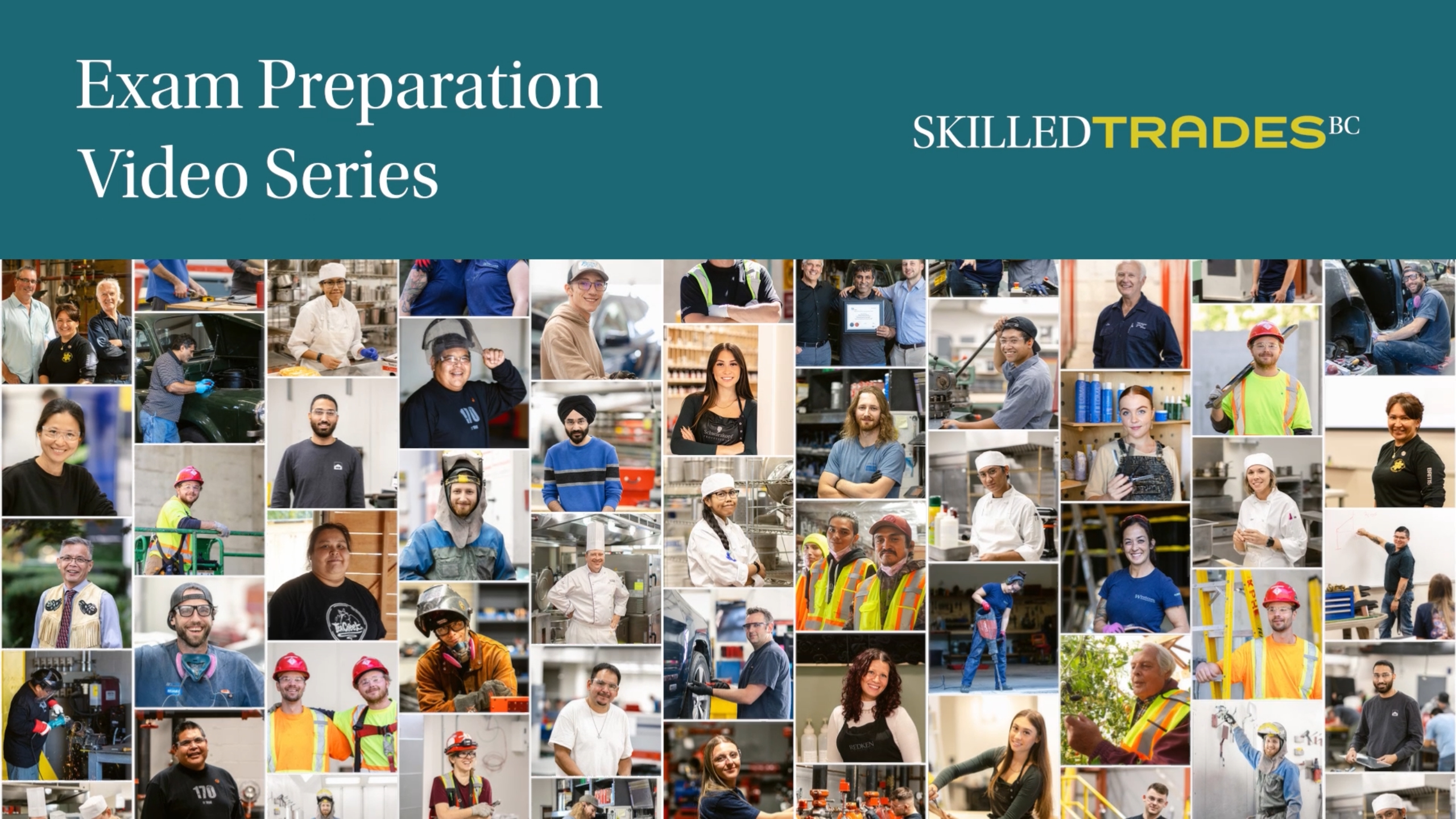Exam & Study
Support

Watch the Exam Preparation Video Series on YouTube
Get the most out of the time leading up to your exam. Studying and preparing are important, and there are lots of resources to help you.
Note: the information and resources on this page are intended as a guide only. SkilledTradesBC is not responsible for the quality or accuracy of the content.
Exam Resources
Your trade page contains exam resources specific to your trade and is the best place to start when preparing for your exam.
Search for your trade using Find Your Trade and review the Exam Information and Resources section (often near the middle of the page) to find:
Exam breakdowns
Interprovincial Red Seal Examination information
Formulas, codebooks, acronym lists
Also check out the Program Outline on the page for a detailed breakdown of your trade’s program, including level-specific content, reference materials and a list of essential tools and equipment.
If you are writing an Interprovincial Red Seal Examination, the Red Seal website is a useful tool with many resources.
This website includes the following resources:
Each Red Seal trade page provides trade-specific exam information, as well as helpful resources such as Mathematical Formulas and Acronyms.
Free Math Resources
Practice Exams
Miscellaneous Resources
Refresher courses can supplement technical training, on-the-job training and independent study to help you prepare for your certification exam.
While SkilledTradesBC provides guidance on standards relevant to some of these refresher courses, the quality and accuracy of refresher courses are the responsibility of the training providers. You can also search for refresher courses at Trades Training BC.
Our Exam Preparation video series will help guide you through each step of the exam preparation process. Check out the following short videos below to get started:
Need More Help?
If you have questions or would like to learn more about available exam and study support, contact Customer Service.
Exam Accommodations
SkilledTradesBC can offer accommodations, based on your needs, to help you complete exams.

What to Expect on Exam Day
There are several ways to ensure you’re prepared and know what to expect before exam day.
